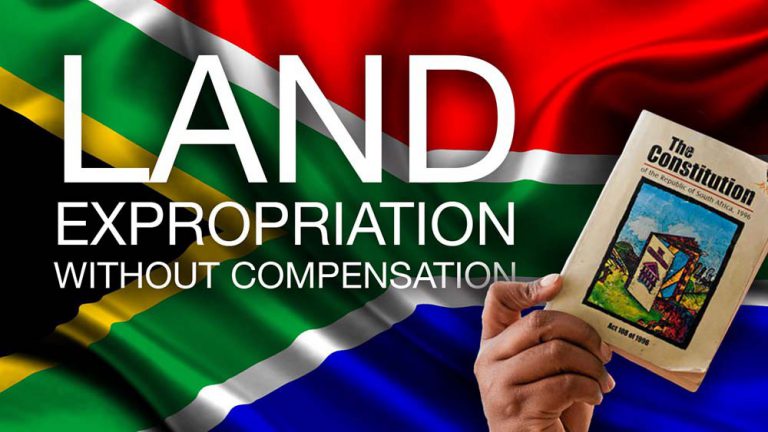By Simon Nare
While political parties and formations on the political left continue to celebrate the signing of the Expropriation Bill into law, the DA has declared the new law unconstitutional and is heading to court to challenge it.
President Cyril Ramaphosa signed the Expropriation Bill into law on Thursday, paving the way for national, provincial governments and municipalities to expropriate private land.
While the DA is part of the government, it said on Friday that the signing of the new law was a direct attack on the constitutional rights of South Africans.
“We have obtained a legal opinion that the Expropriation Bill is unconstitutional. We will fight this dangerous legislation by every possible means, including in the courts. We will not stand by as the government seeks to undermine our rights and erode the rule of law,” DA spokesperson Willie Aucamp said in a statement.
One of the party’s Cabinet ministers, Public Works and Infrastructure Minister Dean Macpherson, went on social media and vowed that he would not implement such a government policy.
He posted on X: “As the Minister of Public Works and Infrastructure, there will be NO expropriation of private property without compensation on my watch. The guarantee of property rights under Section 25 of the Constitution is not up for debate and is non-negotiable.”
Party leader John Steenhuisen will brief the media on Saturday on what steps the party will follow in response to what it describes as a deeply concerning development.
“The DA will unpack our action plan and how we intend to hold the government accountable for these reckless and unconstitutional moves,” it said.
Meanwhile, the Economic Freedom Fighters and Cosatu were the latest organisations to react to the new law.
While the union federation was elated about the law, describing it as a historic victory for the working class, the EFF said in was not enough to address the land issue.
Cosatu said the law would be a key tool to capacitate government to accelerate land reform and empower it to use expropriation, including where relevant with full, partial or no compensation to support land reform.
Further, it would address the legacies of apartheid and the inequalities that still scarred South Africa’s socio-economic landscape.
“The passage into law of the Act marks an historic victory for the working class, the dispossessed and the downtrodden. It is a welcome step towards honouring the African National Congress’ commitment to accelerating government’s efforts to ensure all South Africans have equal access to land, water and other natural resources,” it said.
The EFF said it had opposed the Bill in Parliament because it provided legislative mechanism for the implementation of Section 25 subsections 2 and 3 of the Constitution, which provide that no land or property may be expropriated in terms of law of general application for a public purpose or in the public interest.
The red berets said the new law did not provide a radical departure from the past, but merely aligned the country’s expropriation laws with the 1996 Constitution.
It argued that Section 25 (2)(b) of the Constitution provided that expropriation could only be done subject to compensation, the amount of which must be decided by the parties concerned or by courts.
On the other hand, Section 25 (3) set out factors which must be taken into consideration when calculating compensation for expropriation.
“Those who conceptualised the Expropriation Act are of the view that the factors listed in Section 25(3) of the Constitution can be creatively interpreted to mean that in some instances, compensation for expropriation could be nil.
“This is a very wild hypothesis, rooted in some utopian understanding of the Constitution. The Constitutional framework remains the same, expropriation in South Africa is compensation-centric, and this is rooted in the Constitution,” the party said in a statement.
It added that the new law was a legislative cop-out by the ANC used to fool “our” people into believing that the party was doing something to address the land issue.
It argued that the law would not assist in resolving the tragedy of land restitution.
“The only democratic mechanism through which the land question can be resolved is in amending the entirety of Section 25 of the Constitution,” it said.
INSIDE POLITICS

